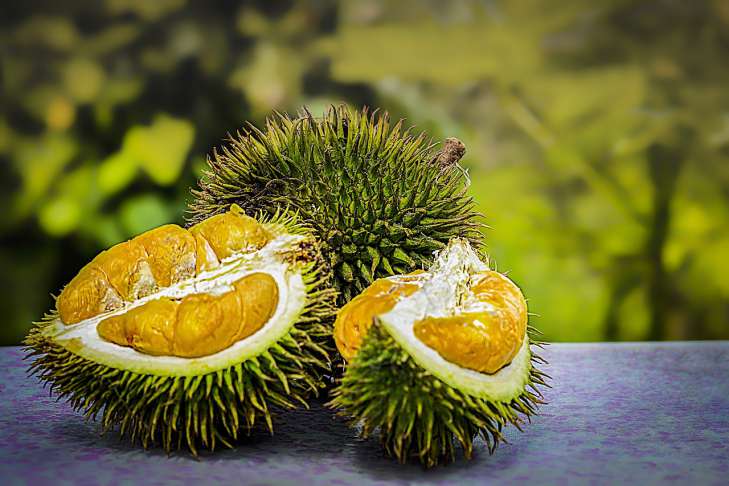Durian: Health Benefits – Nutritionist's Opinion
The fruit of a very delicate consistency has at the same time: a nutty-cheese taste, a custard-like taste, reminiscent of a combination of banana, mango, pineapple, overripe papaya and vanilla.
For some people, the taste resembles a mixture of ice cream, onions, spices and banana, strawberries with dried persimmons.
What are the benefits of durian
Durian contains a large amount of minerals: calcium, magnesium and zinc, which has a positive effect on the functioning of the cardiovascular, nervous, immune and other body systems.
Durian is a source of fiber, vitamins B and C and antioxidants. Therefore, the fruit has a beneficial effect on intestinal function.
Why does durian smell like that
The fruit contains about 40 volatile compounds, which mix into one completely different smell - from rotten egg to caramel.

A durian fruit once led to the evacuation of an entire university in Australia.
Then its aroma was confused with the smell of gas.
How to eat durian correctly
It is better to start tasting durian with a very small slice, which will perfectly convey the taste, but not the aroma.
If durian is frozen, the aroma disappears, but the taste remains.
We previously talked about the health benefits of red rice.
